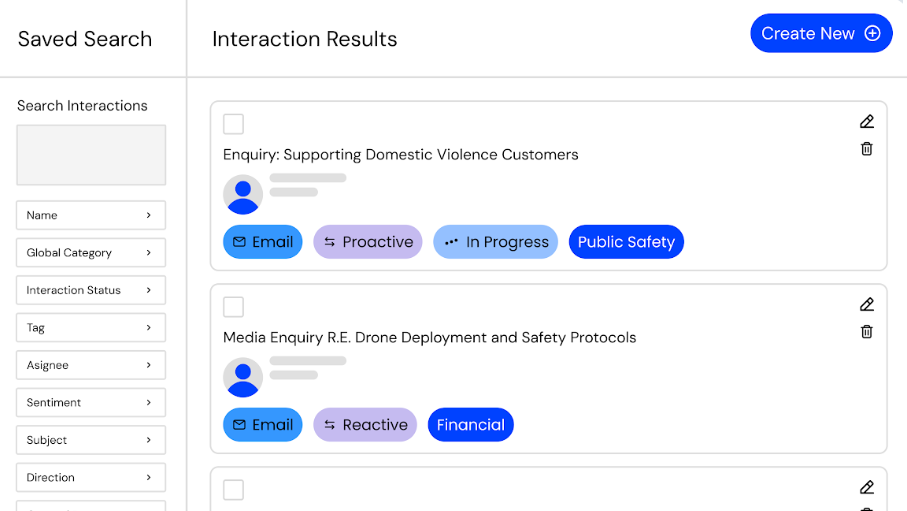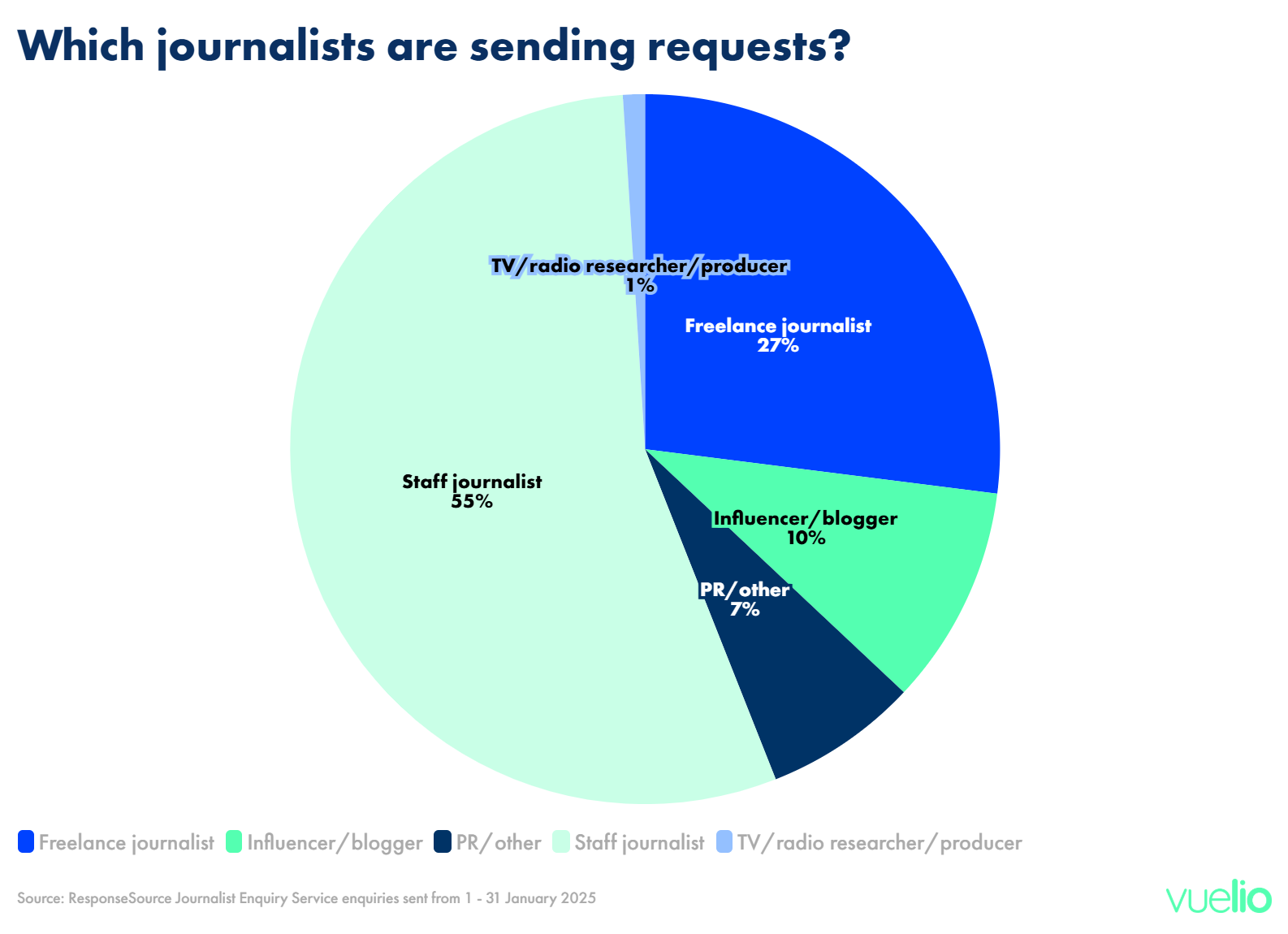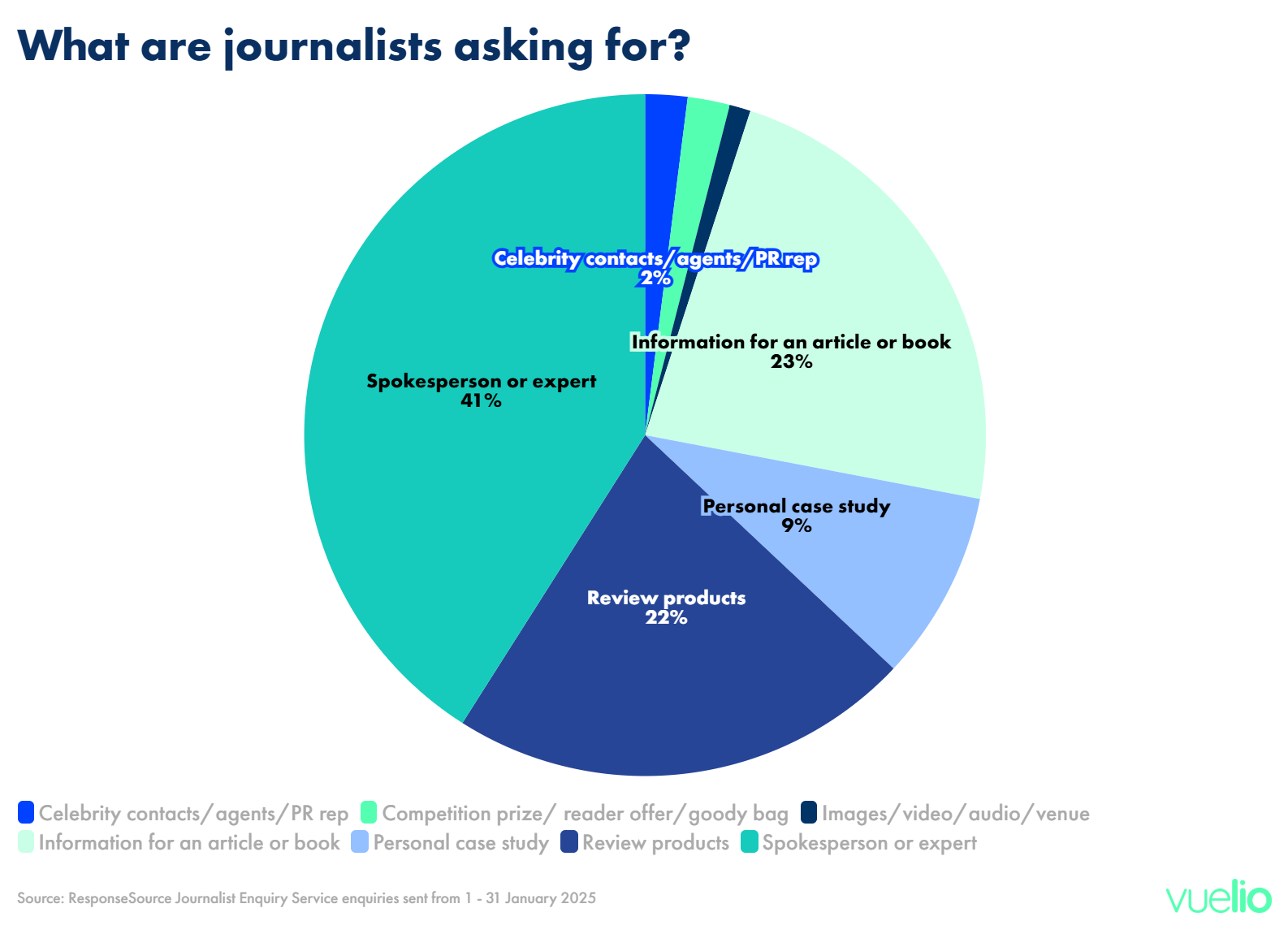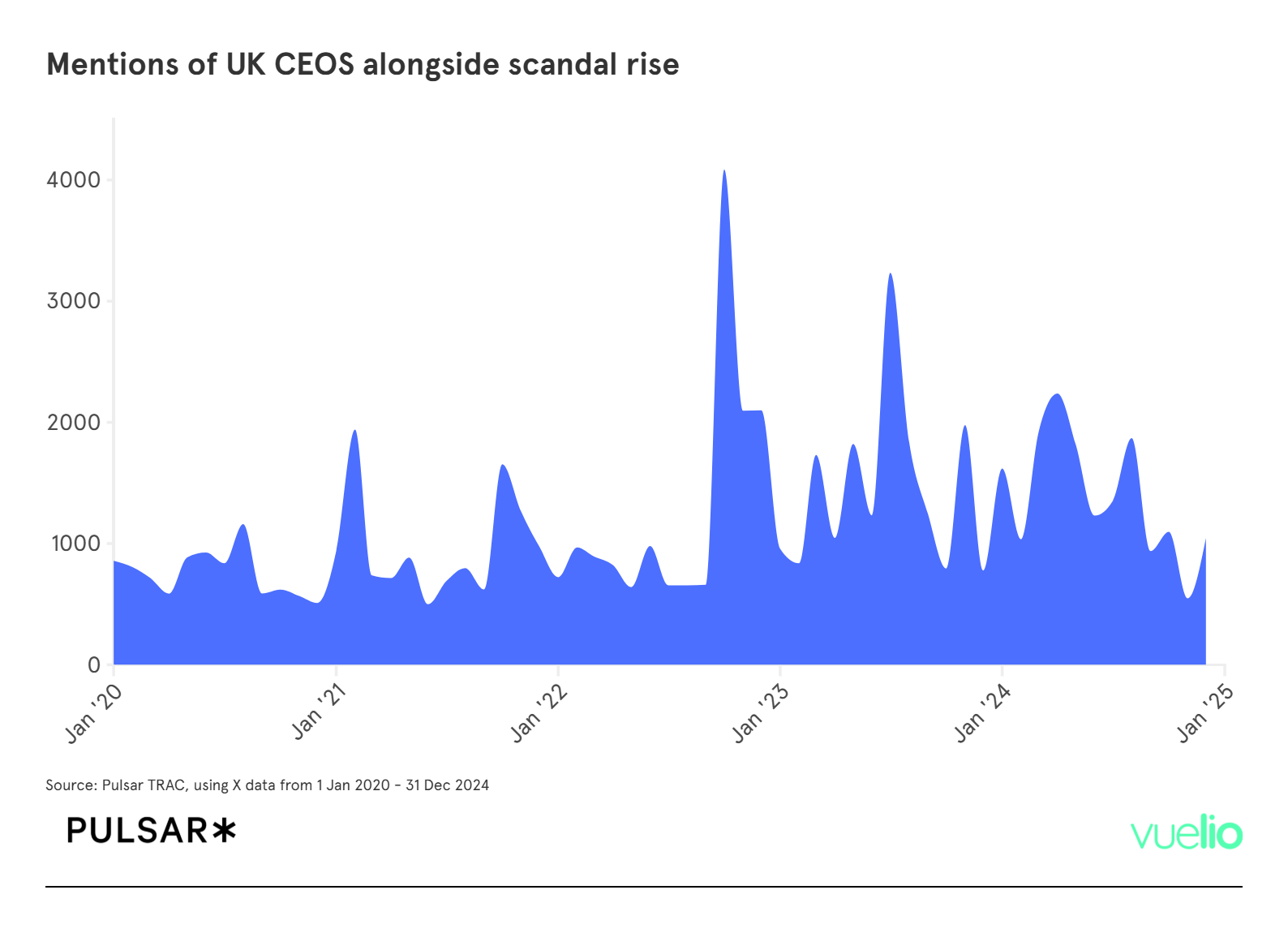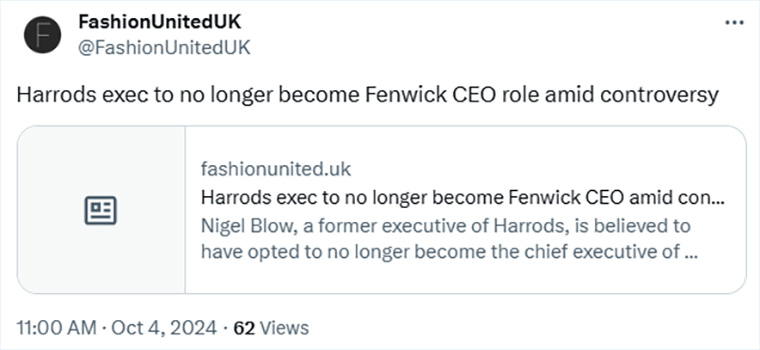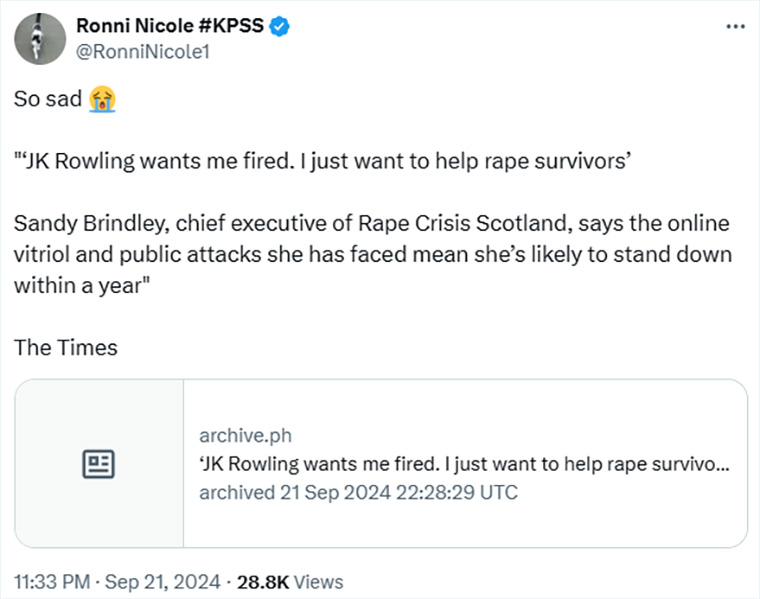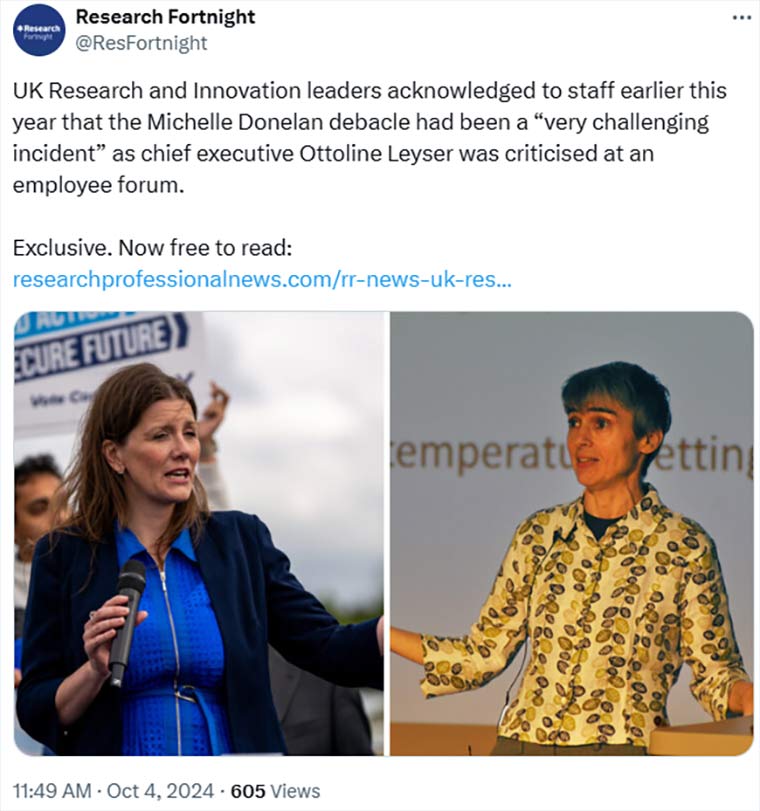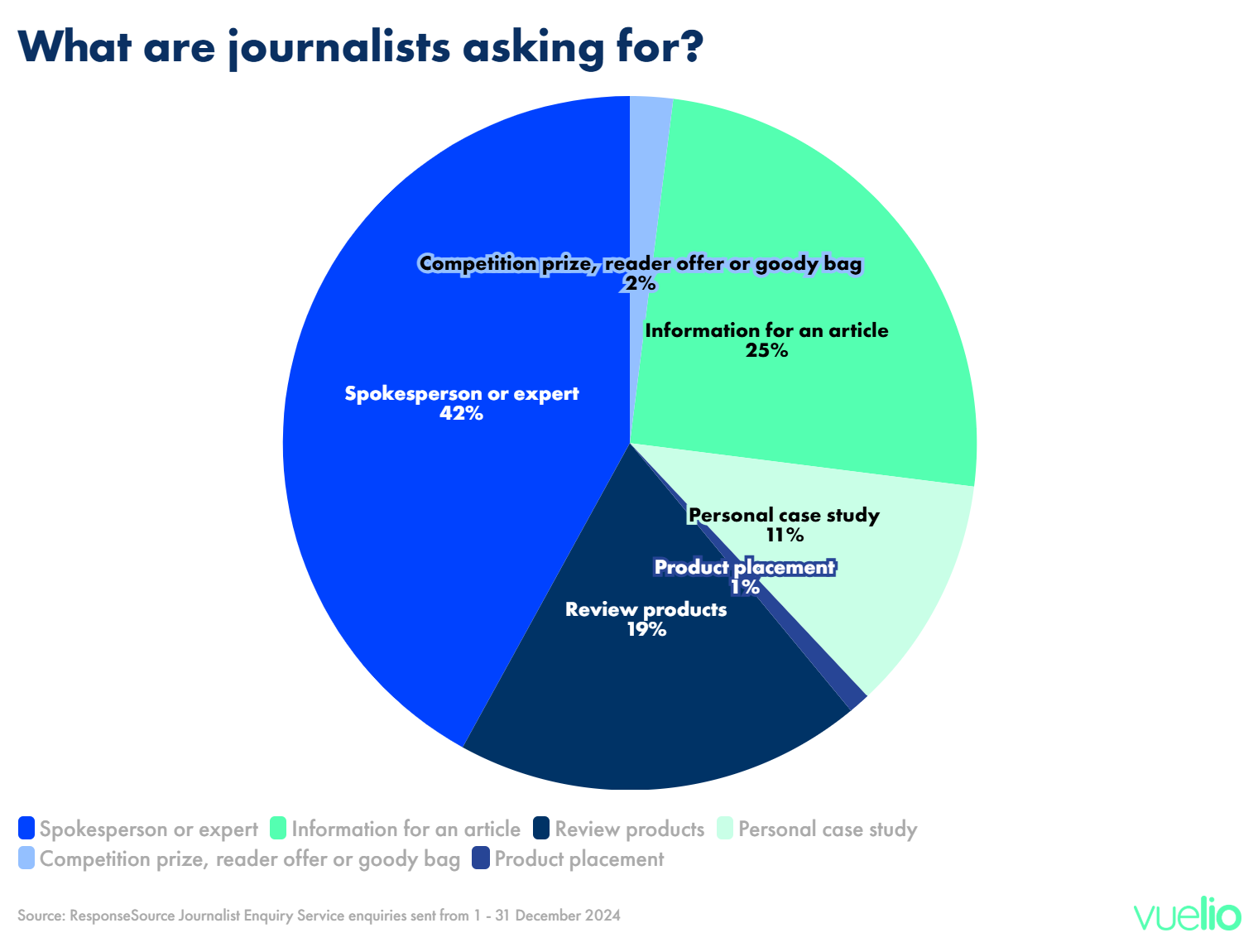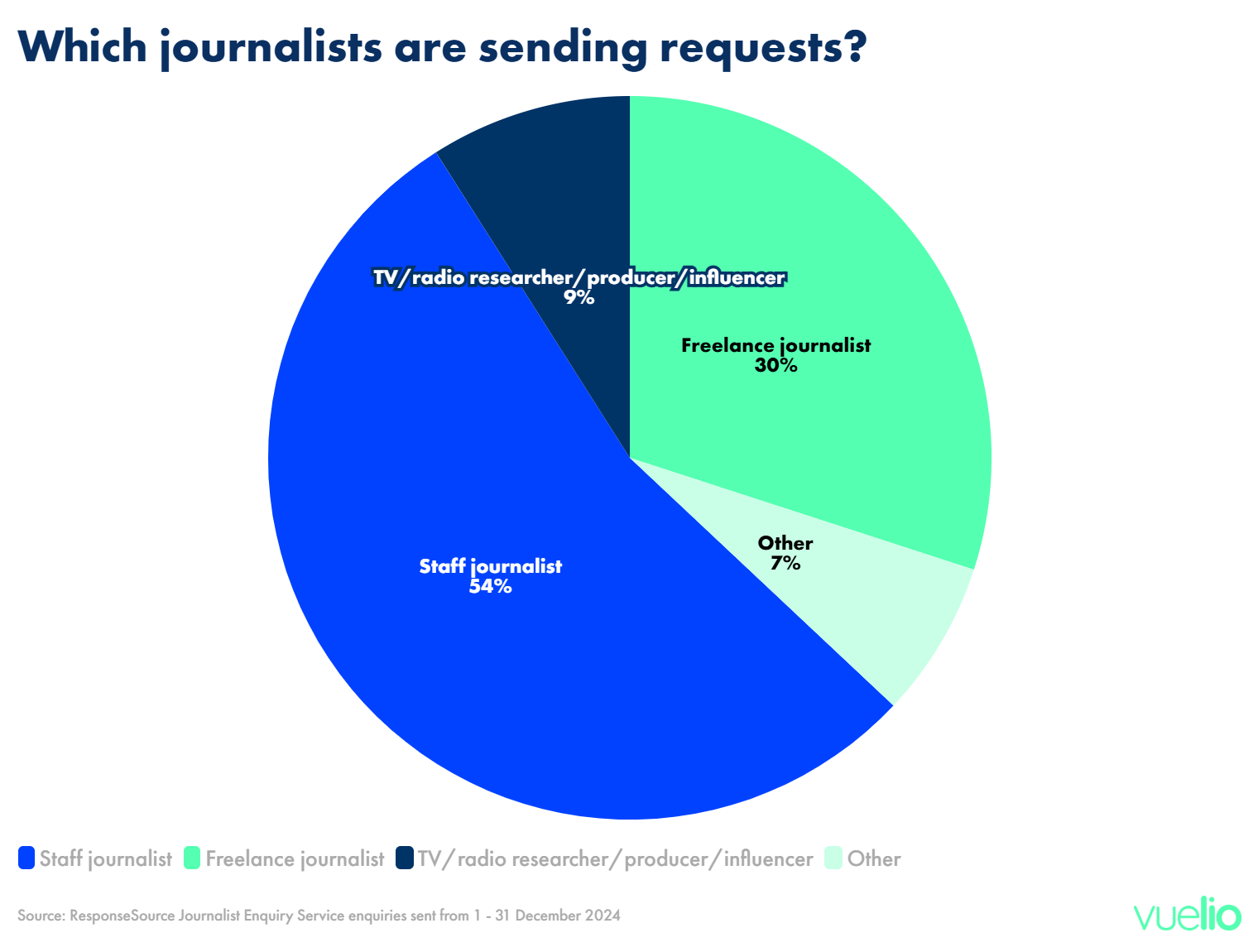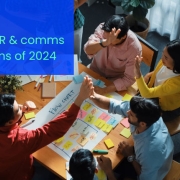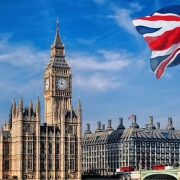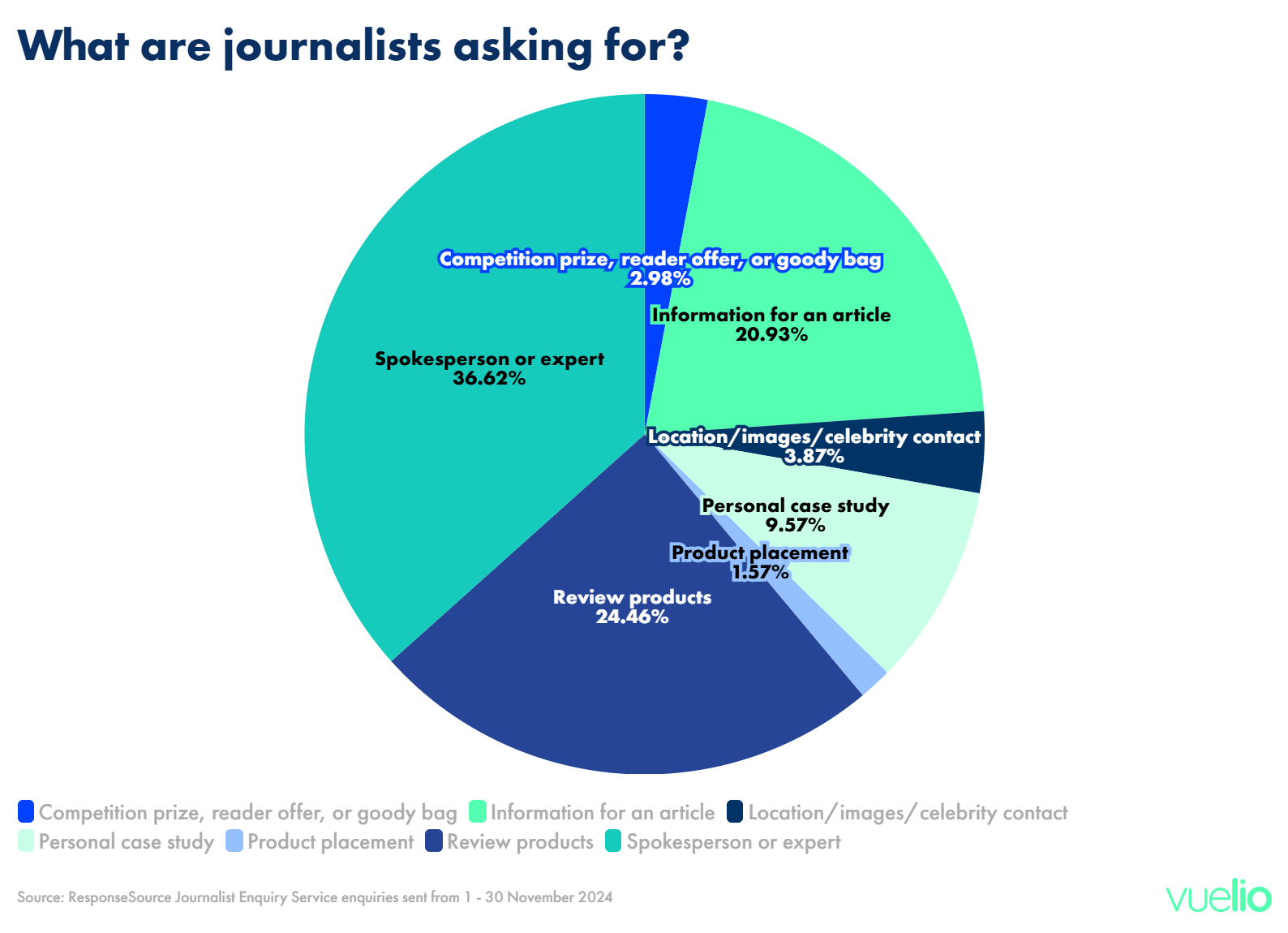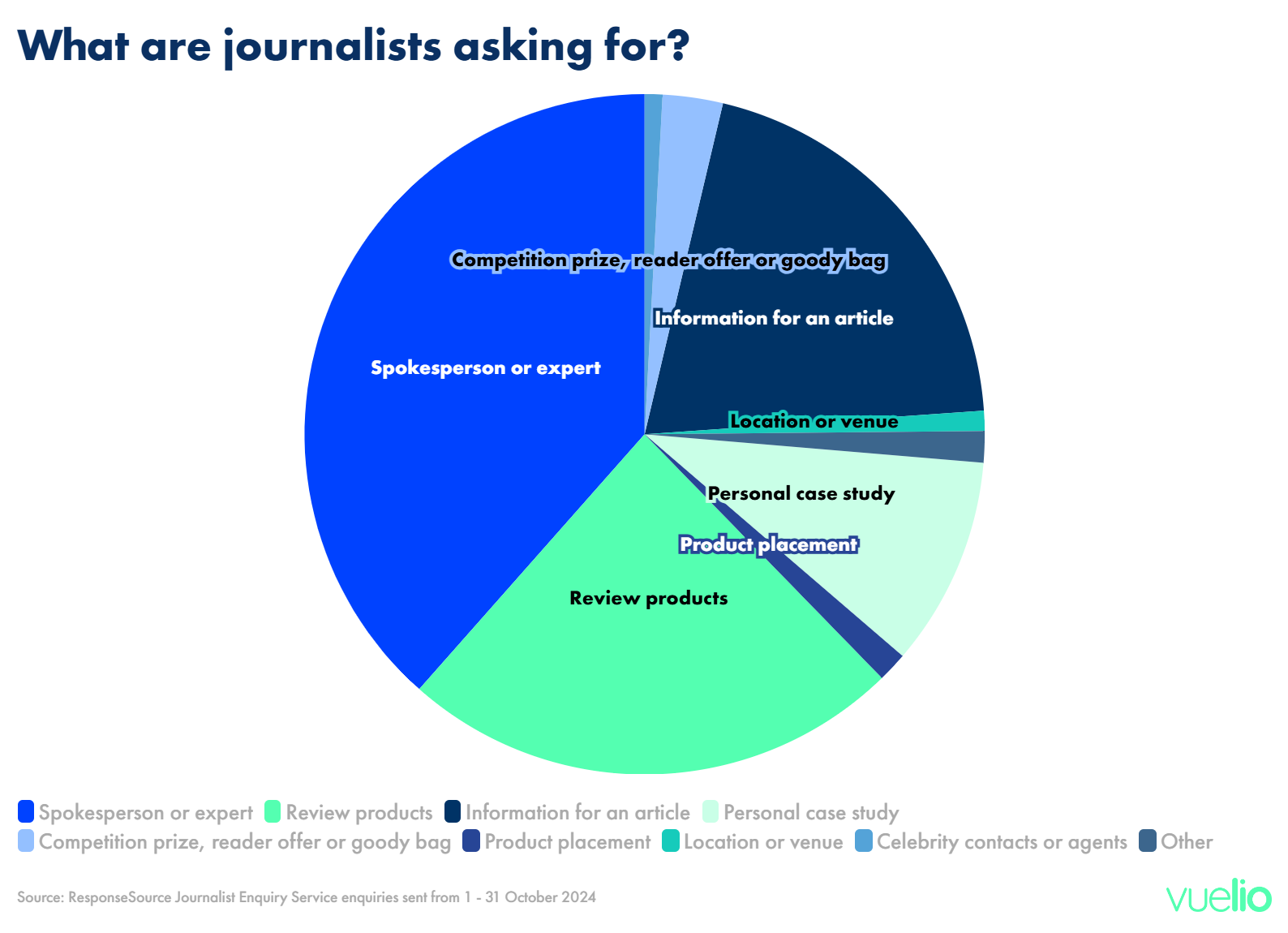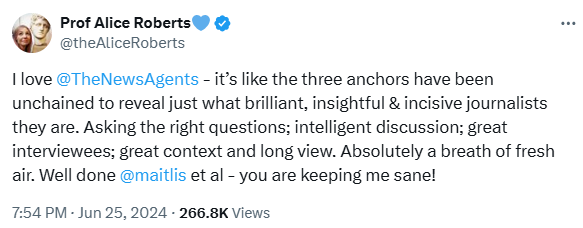How has the emergence of new media platforms impacted journalism, and its audiences?
To explore the state of journalism today and how it’s evolving for the future, we invited two panels of industry experts to share their expertise with an audience of PRs and fellow media professionals for the Pulsar x Vuelio event: ‘Seeking Audiences: Journalism in the Platform Era’ event.
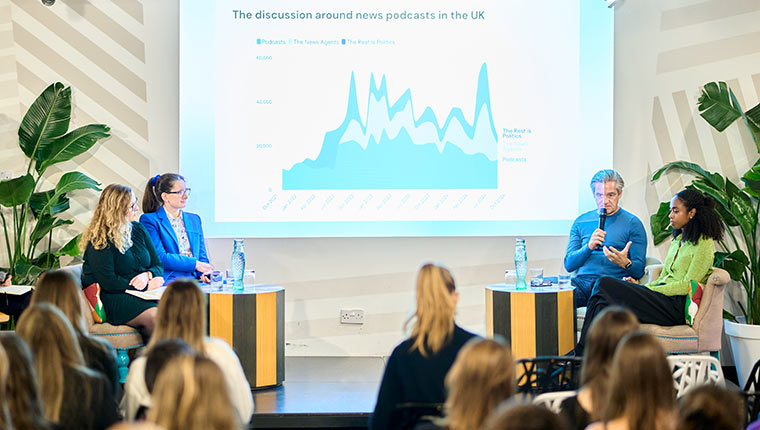
Joining us to discuss the ‘new news’ landscape – including the challenges of capturing audience attention amid fragmenting forces like TikTok; the role of podcasts; and comebacks for local news – was Press Gazette UK Editor Charlotte Tobitt, ITV News Reporter and Producer Siham Ali, Polis Founding Editor and Director of The Journalism AI Project at the London School of Economics Professor Charlie Beckett.

Covering changes in audience perceptions, brands, and behaviours was CNN International Commercial Vice President, Audiences & Data Tini Sevak, The Economist’s Media Editor Tom Wainwright, and BBC News Journalist, Producer, and Presenter Kamilah McInnis.
Here are key points from the speakers, as well as extra answers we ran out of time for…
The new news: Reaching audiences with journalism today, from TikTok to podcasts, to local journalism
So many platforms, so little time for each: What are the biggest hurdles to reaching an audience for journalists?
‘Two main things – the fragmentation of the media landscape, and Google sending less traffic to them,’ was the verdict from Press Gazette’s Charlotte Tobitt, who covers the fortunes, and fluctuations, of the media as part of her daily beat.
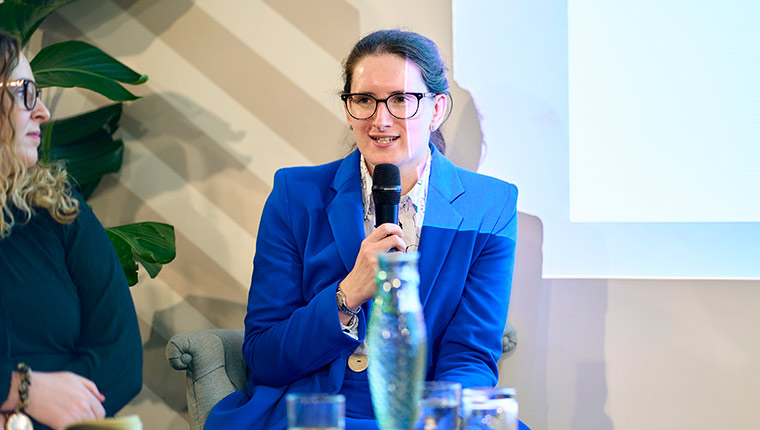
‘It’s rarer for someone to search for ‘The Telegraph’ to find their news now, and publishers are finding it harder to engage directly. They need to future-proof against the many other platforms out there by building brand connections – trust is at a real low in the UK and the US’.
Charlie Beckett, whose organisation Polis campaigned hard for amendments to the Online Safety Bill, highlighted just how much the media industry has been transformed by competing platforms pumping out information, 24/7:
‘I remember when it was just papers and TV. We were the only place you could get news – life was great!

‘Social media is the biggest thing to happen to journalism in a hundred years. You have incredible access to different sources, and that can be overwhelming. But as an audience, we don’t want to go back.
The problem for publishers is having to start from a place of what people want. But journalism has always been good at that.’
Is the plethora of platforms warring for audience attention actually an opportunity for journalism? ITV News’ Siham Ali, talking as a reporter with ‘boots on the ground’ across the UK, sees the positives:
‘I think finding an audience is easy with TikTok and Instagram. Especially with local news – Facebook has made our jobs easier.

‘We have stories that perform well on TikTok. The trick is adapting our storytelling to this new way of sharing news. I don’t think it’s a bad thing. But then, I’m young, so…’
Another ‘newer’ format for storytelling is podcasting, a medium the publishing industry has invested in heavily over the last few years.
‘[The podcasting format] is infecting ‘traditional’ broadcasting and making it more casual,’ believes Charlie. ‘And they aren’t much different – they’re merging.
‘Podcasts are ambient. TikTok, you’re more focused on it. When we talk about audience attention, it’s skeletal – it doesn’t tell us everything we need to know.’
Rebuilding trust in the news industry when bad actors also have a platform
Vuelio’s head of insights Amy Chappell asked if the extra competition for audience engagement has meant more clickbait (and as a result, more misinformation).
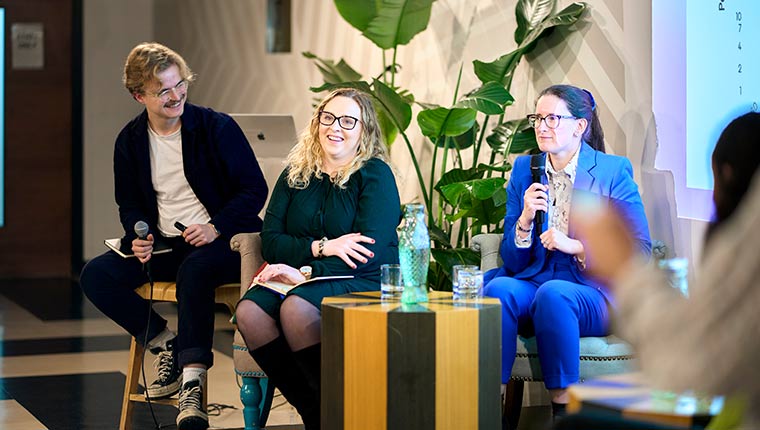
‘You have to be really careful where you get your news from,’ said Siham. ‘I’d like to think the big media names are the good actors. There’s clickbait everywhere.’
Charlie pointed out that this isn’t a phenomenon born from the digital age:
‘Audiences have a lot of agency – they consume “fake news” because they want to. People are driven by identity and emotions, by fear – they choose to consume what panders and pays attention to fears they have.
‘Clickbait wasn’t suddenly invented. Marketing and advertising people have known this for decades.’
Trust was also highlighted as a difficult part of the local journalism ecosystem –
‘People are at the heart of everything we do. In journalism – people are the story,’ said Siham.
‘I was only able to work on certain stories because of people in communities. I saw their need to be heard.’
The importance of time covering a local new beat on a journalist’s skillset was underlined by Charlie – not just for the journalist, but also for building loyalty with audiences:
‘Editorial diversity is what’s needed – knowing what it’s like to grow up on a council estate, for example.
‘Most national press get their stories from local news. The media have to be honest that we’ve messed this area up by reducing news teams – fewer journalists are left now in regional journalism.’
Is social media and vertical video making news accessible, and can it bring media success?
‘The news industry was slow to TikTok, and then a few individual journalists picked it up,’ explained Charlotte.
‘The Daily Mail is now one of the biggest news publications on TikTok, and it’s a good thing for the longevity of the brand.
‘People were hesitant initially because the monetisation wasn’t there. But for brand building, it’s worth it. The TikTok algorithm is so good that the right stuff should find the right people.’
But Charlotte also recommended caution regarding social platforms like TikTok:
‘It would be risky to rely on them completely – the platforms can change up the algorithms anytime. Publishers shouldn’t get too excited about one platform.’
‘Audiences that are underserved [by traditional media] are on TikTok,’ added Siham.
‘They might then come through to ITV at 6.30pm. An 18-year-old then knows what’s happened in Westminster today. They’re now able to pass that information to their friends at the pub.
‘TikTok used to be an afterthought, but now it’s part of the planning stage at ITV. The social team make up a chunk of our output on the platform’.
The opportunities for PRs and a bright future for journalism
‘I used to work in PR, and we didn’t think to add vertical assets – there’s a lot of potential in that space, said Siham. ‘Show that your content is multiplatform.’
‘I’ve seen politicians doing interviews directly with social teams, and not the digital news teams. That trend is quite interesting.’
‘I’m excited by the new platforms, adapting as a news organisation is exciting.’
‘If I wasn’t optimistic about the future of journalism, I would be in the wrong job,’ said Charlotte. ‘People are aware of the challenges, but there’s lots of innovation and cool stuff going on.’
‘The news industry is more aware than it’s ever been. News is incredibly resilient – the dogs won’t die,’ said Charlie.
Journalism in the platform era: Audience perceptions, brands, and behaviours
How worried should the media and comms industries be about increasingly polarised communities?
The Economist’s Tom Wainwright highlighted just how split media audience are along political lines – particularly in the election-heavy 2024:
‘More extreme takes travel further online than more moderate ones. That makes the space seem very polarised. And what you see in polling is that trust is very split along partisan lines in readerships and viewer bases. After Brexit, the big fallout between ‘leave’ and ‘remain’ audiences, for example.
‘It’s part of a broader mistrust from more conservative audiences with what they see as ‘elite’ institutions. This split is a hard thing to fix. Organisations need to increase their diversity of staff partly because of this. There’s a divide that’s baked in.’

‘People still value credible and well researched journalism but news is dominated by organisations that focus on sensationalism and misinformation,’ added BBC News’ Kamilah McInnis.
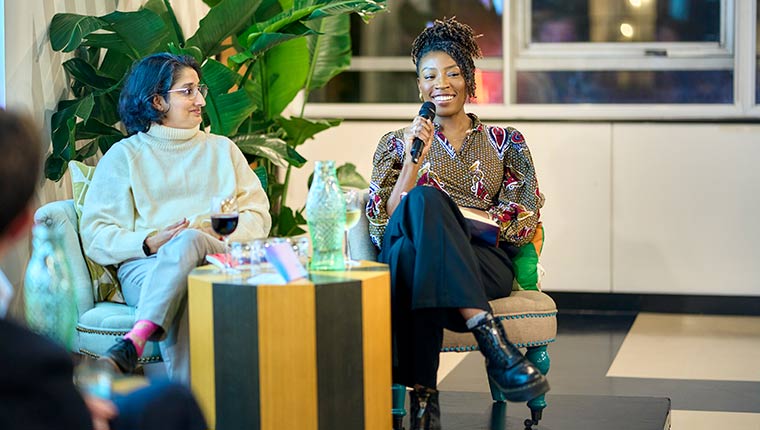
‘Organisations should apologise when mistakes are made, listen to audiences and be consistent to rebuild trust. Respond to what audiences need. And remember that they also tune in for escapism and analysis.’
CNN’s Tini Sevak emphasised how vital established and non-partisan media organisations are for the public, whatever their political outlook:
‘When people are making big decisions, they’re still coming to news organisations.’

Bringing audiences back to engaging with news reporting, wherever it’s published, posted, or shared
The panel talked about the rise in news avoidance over the last few years, and how this is increasingly impacting audiences across demographics. It’s not just younger people who avoid hard news – not tuning in to ‘traditional’ news mediums like ITV News at 10, or picking up a daily print newspaper. Even those who had previously been avid news-followers are tuning out for a variety of reasons – the increase in global conflict; the ways awareness of this has seeped into all other mediums to become a constant in the background of modern lives; even the lack of censorship and inclusion of distressing images and updates.
Much has been made of this increase in news avoidance over the last few years – both at industry conferences for journalists, and in reports detailing challenges for publishers. Could a factor be a simple lack of visibility for ‘traditional’ news platforms?
As Tom pointed out: ‘As a child, I had to watch Newsbeat to get to Grange Hill. People are moving from a news-rich environment to a news desert. Maybe people are bored of news, but I think they’re just seeing less of it.’
Discussion also centred on the lack of news on the streaming channels now available – Tom mentioned Netflix as an example of a platform that doesn’t have an option for news updates. For many of the public, the only way they will encounter broadcasts devoted to news reporting specifically will be by seeking it out. How can new organisations build relationships so that audiences will search for them as sources?
For Tini, reputation and reliability are vital:
‘When you’ve got a brand that stands for something, you have a relationship with your audience. It’s about giving back – news has to be a reflection of life. Hard news, but also culture – reflecting what life is about’.
The impact of paywalls and subscription models
Tom pointed out the difference that a subscription model makes to an outlet’s overall focus, not just their audience:
‘Organisations that focus more on subscriptions are more likely to go niche. The New York Times has shifted to a subscription model and is aiming to be more in tune with their readers – for the good and bad.
‘If you’re funded by advertising, however, you’ll be more generalised and centrist. With subscriptions, readers want to engage with content they agree with. The way publications respond to that dilemma depends on their business model’.
‘The brand safety aspect is very real,’ added Tini.
‘Advertising within news doesn’t have to be a detriment to your brand. There’s an opportunity to engage with a tuned-in audience’.
For more on this topic, as well as the Pulsar and Vuelio research discussed during this event, check out our reports ‘TikTok journalism: The platform’s impact on news audiences’ and ‘Hold the homepage: How scoops circulation through the modern media landscape’.
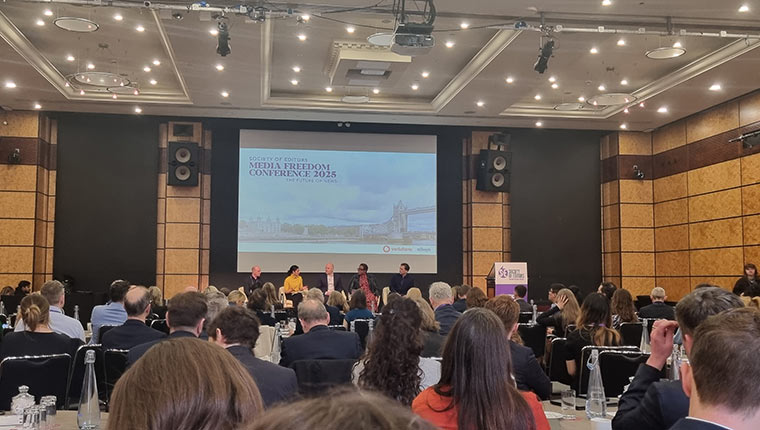





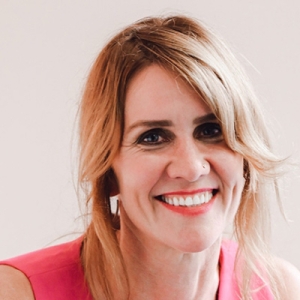 Sarah Waddington, Director of
Sarah Waddington, Director of 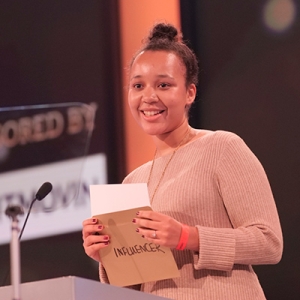 Zoe Mumba Beard, Head of PR & Communications,
Zoe Mumba Beard, Head of PR & Communications,  Advita Patel, Director of Comms Rebel, co-host of
Advita Patel, Director of Comms Rebel, co-host of  Hayley Knight, Founder,
Hayley Knight, Founder,  Hilary Collins, Founder,
Hilary Collins, Founder,  Angela Yore, CEO of
Angela Yore, CEO of  Chloé Nelkin, founder and Director,
Chloé Nelkin, founder and Director,  Rachel Roberts, CEO and Co-Founder of
Rachel Roberts, CEO and Co-Founder of  Sarah Woodhouse, Director,
Sarah Woodhouse, Director,  Emma Heley, Co-Founder and MD, Thinking Hat Media
Emma Heley, Co-Founder and MD, Thinking Hat Media




